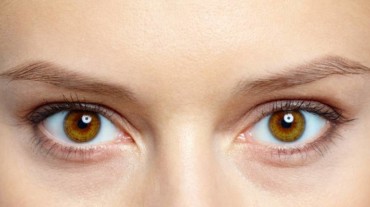
Most of us might be unaware but blindness has far reaching implications on the society that we can imagine. And guess what? Almost 80 percent of the visual disability can be prevented, if we act on time. So, we should know how to protect eyesight.
According to Vision 2020, a global initiative by World Health Organization (WHO) and The International Agency for the Prevention of Blindness (IAPB), the worldwide burden of preventable blindness can be reduced by two important methods – first, by enriching the skills and training personnel and second, by educating the community and spreading awareness. Launched in 1999, its efforts are targeted towards preventing an estimated 100 million people from going blind globally and alleviating overall eye health.

As part of a relatively normal aging process, the natural lens of the eye gets opacified, which in turn, causes blurring and advanced deterioration in patients’ vision. It can be corrected with cataract removal surgery where new lenses are implanted to effectively improve the vision. Nowadays, a variety of surgical procedures and lens implants are available, thanks to the advent of technology. However, the population of people who live in remote areas still don’t have access to such procedures.
Also, read: Summer eye care: Protect your eyes from the harsh heat wave
A regular eye check-up is mandatory for everyone who has diabetes and it cannot be emphasized enough. In fact, diabetics have become one of the world’s leading causes of blindness as it causes early cataract and retinopathy. It can cause both preventable to permanent loss of vision, depending on the extent of retinal involvement. If someone is diagnosed with diabetes, he/she should undergo an eye exam immediately, followed by a review at regular intervals by an ophthalmologist, even if the vision is not affected, as early diagnosis and treatment can help to maintain a good vision.

With no early symptoms, Glaucoma is a preventable but irreversible cause of blindness. The damage is caused by eye pressure on the optic nerve, which ends up causing an irreversible loss of vision in the advanced stage of the disease. The only way to prevent blindness, in this case, is early diagnosis and treatment. The risk of glaucoma is higher with a family history of glaucoma, and in patients with hypertension or diabetes. Glaucoma screening plays a major role in reducing the burden of blindness in the society and people diagnosed with it should strictly adhere to the treatment and follow up for regular checking of eye pressure.
Apart from the aforementioned causes, hypertension related changes in the retinal blood vessels and age related degenerative changes in the central area of vision are two additional causes of reduced vision, which can be also treated effectively by early diagnosis and new treatment options available.
Make sure you eat healthy meals with green leafy veggies, if you wish to have good eye health. Green vegetables contain nutrients like lutein, zeaxanthin, among others, which have proven efficacy to reduce the risk of eye disease significantly. Fresh fruits like strawberry, apples, papaya, oranges and mangoes also provide essential vitamins and antioxidants. Increase your intake of fish as it provides Omega 3 fatty acids, which helps to fight dry eyes.

Wearing sunglasses, while going out during the day, protects the eyes from harmful effects of the UV light as well as from dust and allergens. It is proven to reduce risk of macular degenerations and delay the development of cataract. Skin around the eyes is the thinnest and most vulnerable to the damage caused by UVA/ UVB radiation. Hence, using sunscreen around the eyes and wearing sunglasses will help reduce the risk of carcinomas and melanomas too.
Smoking can cause various eye problems and puts one at a higher risk of cataract, optic nerve damage and various other eye related problems. Cyanide from smoke enters the bloodstream and ends up destroying the eye cells, causing certain incurable conditions.
Select Topics of your interest and let us customize your feed.
PERSONALISE NOWPeople with diagnosed eye problems should pay a visit to an ophthalmologist at least once a year to keep a check on their vision and other parameters. Children, at the age of 3 (pre-school), should undergo their first eye check up to ensure their vision is fine. Adults, by the age of 40, should get their baseline eye exam.
Post the Covid-19 pandemic, working hours on computer and screen usage for entertainment or education has exponentially increased. It has led to disturbances in the tear film layers apart from causing myriad of other symptoms, from irritation to redness and severely debilitating dryness of the eye. Computer vision syndrome is now a known problem but several ergonomic changes such as placement of the screen, source of light, blast of air conditioner, fan etc can be tweaked to help protect the eyes. One should take frequent breaks from the screen (follow the 20-20-20 rule), try regular blinking, and use filters and lubricating drops to make the experience of using the screen comfortable.

Nonetheless, eyes are not only our window to see the world, but they also need intense care. So please make sure that you don’t put off your next eye appointment, because, as they say, prevention is better than cure!
(The article has been co-authored by Dr Minu Ramakrishnan, Professor and Head – Department of Ophthalmology, K.J. Somaiya Medical College and Hospital, and Dr Vrunda More Patil, Associate Professor, Department of Ophthalmology, K.J. Somaiya Medical College and Hospital)